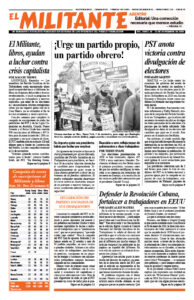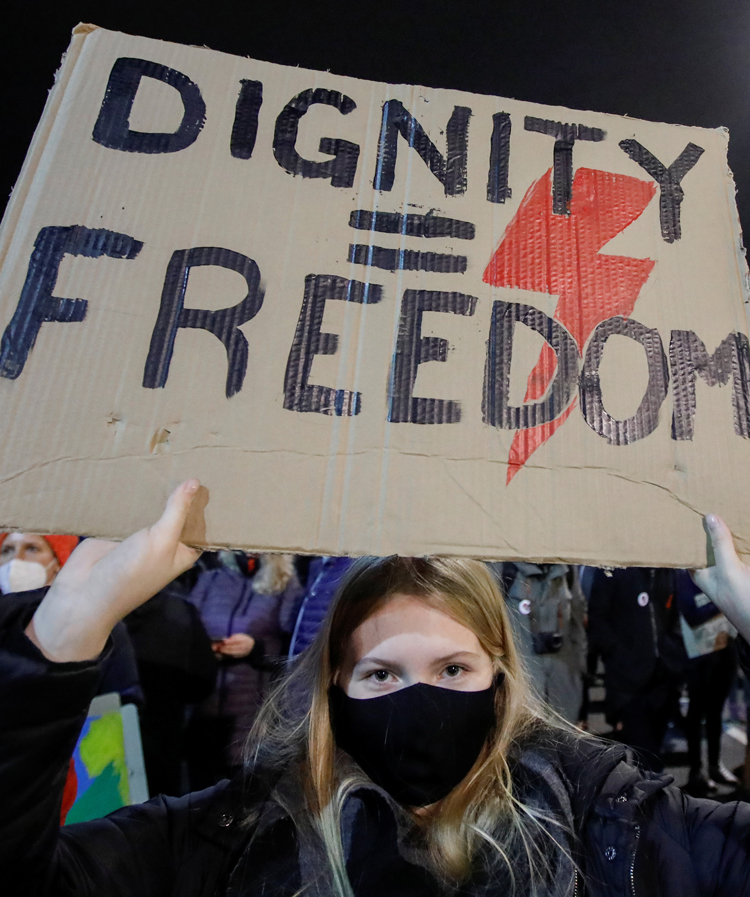Mass protests have taken place in Poland since an Oct. 22 ruling by the country’s Constitutional Tribunal ordered a near-total ban on abortion. Within hours of the decision people were in the streets. Since then daily rallies and marches have grown. Even the police admit that more than 400,000 people attended some 400 actions across the country Oct. 28.
These are the largest protest actions in Poland in decades. Polls in the press say barely 15% of Poles back the threatened restrictions.
Feeling the pressure, the government has delayed publication of the court ruling indefinitely, meaning it hasn’t gone into effect. Prime Minister Mateusz Morawiecki appealed for talks with the protesters and opposition lawmakers, as polls show a sharp drop in support for his ruling Law and Justice party.
The court decision would ban abortion in the case “of a severe and irreversible fetal defect or incurable illness that threatens the fetus’s life.” This was the grounds for 98% of all legal abortions in Poland last year. The procedure is now only allowed in cases of rape or incest, or if the woman’s health or life is in danger.
The government had tried to stop the street protests using COVID-19 restrictions that limit public gatherings to no more than five people, to no avail. The justice minister had threatened to press criminal charges against organizers for “causing an epidemiological threat.” A conviction could lead to eight years in prison.
Similar demonstrations had pushed back government attempts to pass extreme anti-abortion laws in 2016 and 2018.
Government officials had called protesters “barbarians,” “vandals” and “left-wing fascists.” There has been a heavy police presence at some of the actions, and some smaller clashes, but no mass arrests.
Some hospitals have turned away women who came seeking an abortion. Krystyna Kacpura, director for Federation for Women and Family Planning, told the media that many women have called, asking if the ruling is already being enforced.
Protests have continued daily.


